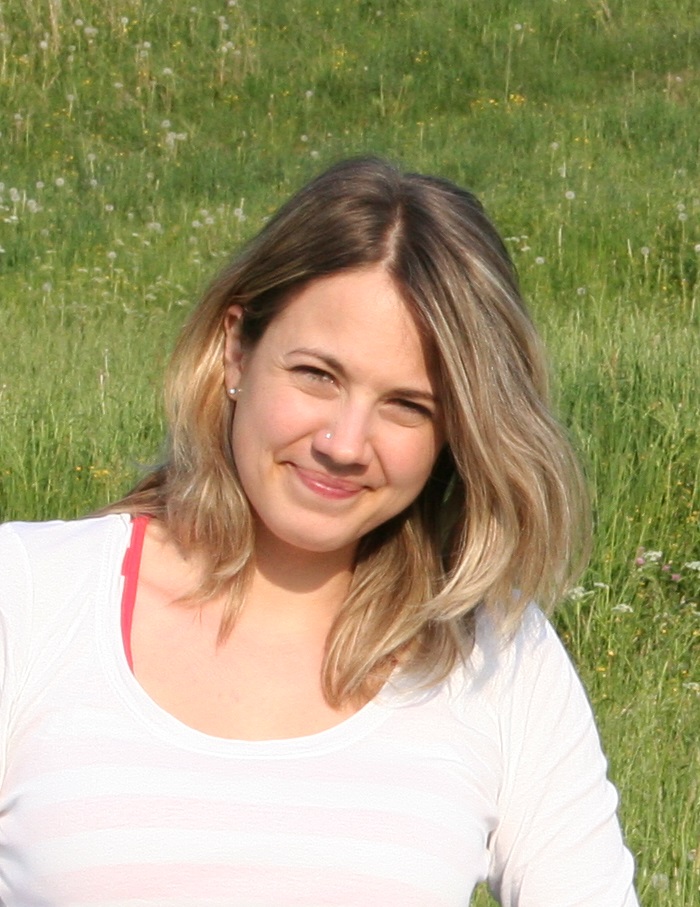 Dr. Leonie Baier (@ninivechen), LMU Munich, is taking part in Soapbox Science Munich 2019 with the talk:“Sehen mit den Ohren? Wie ich den sechsten Sinn der Fledermäuse erforsche / Can sound paint a picture? How I explore the sixth sense of bats“
Dr. Leonie Baier (@ninivechen), LMU Munich, is taking part in Soapbox Science Munich 2019 with the talk:“Sehen mit den Ohren? Wie ich den sechsten Sinn der Fledermäuse erforsche / Can sound paint a picture? How I explore the sixth sense of bats“
Soapbox Science Munich: Did you choose a scientific career or did the scientific career choose you?
Dr. Leonie Baier: I want to say that it chose me, but when I think about it some more I guess I did choose it as well. Not at one point, but over and over again. For a long time I felt somewhat like this career happened to me, but I’ve come to realize that I have actively worked towards it because I really want to do it.
SSM: What was the key event that brought you to the place where you are now?
LB: There wasn’t so much a key event as a key gut feeling. I’ve always loved nature and always loved getting to the bottom of things. So the actual key event was me following that gut feeling: After a practical on bats, I walked up to the professor and asked if I could do my diploma thesis in his lab. That was 15 years ago and I love that I got to come back to the same lab, working with the same bats that started it all. And I don’t think I would be where I am now without the mentorship of my professor. People who guide you and push you and inspire you are key.
SSM: What is the most exciting aspect of your research?
LB: I get to play with bats for a living, that’s very exciting to me. No, seriously, the most exciting thing is that my work is so varied. I’m a neuroethologist; that means I study the interplay of brain and behaviour. And I’m working with a study animal that uses ultrasound and can fly, so I have to apply quite a few technical toys and animal training skills to deal with that. And I don’t just work in the lab but also in the field. And of course for a bat researcher, outreach and conservation are always very important as well. So all in all I get to be a neurobiologist, an animal trainer, an engineer, a physicist, a programmer, a zookeeper, a writer, an ambassador, a traveller – an explorer, really.
SSM: If you are stranded on a desert island: what scientific equipment would you bring?
LB: Definitely a bat detector. That’s a little device that makes ultrasound audible so you can monitor bats even when you can’t see them. I love listening to them because the kind of sound they make can give away a lot: who they are and what they’re doing right now. And also they sound really funny, you should give it a try!
SSM: What challenges do you encounter in science?
LB: Well, for one just the usual: frustration, stress, and so on. But then there’s the constant uncertainty. Until they get a permanent position, young scientists usually are in a temporary employment situation for years and years. As you can imagine, that is especially a problem when you want to start a family. I’ve seen a lot of talented scientists drop out of academia simply because they couldn’t afford to wait for funding any longer. It’s really discouraging sometimes.
SSM: What motivates you to give a talk in Soapbox science?
LB: When I finished my PhD, people actually asked me “So then you’re getting a real job now?” I want to make people aware that being a scientist is an actual career, and not just going to school some more. The other question I constantly get asked is “So what exactly is your work good for?” It always makes me wanna roll my eyes. Our society is so focused on applied science that we tend to forget that applied research only exists because of basic research. Sure, I might not be Alexander Fleming, but every day science collects knowledge and the more knowledge we have the closer we get to more breakthroughs. And nobody knows when basic research on a topic will turn into applied research on that topic. So with speaking at this event I want to promote science as a serious career option, also for women. And I want to open the public’s eye to the pivotal value of basic research.
SSM: What can we do to attract more women to STEM fields?
LB: I don’t think women or girls need to be attracted to it, I think they’re already interested in it – and pretty good at it, too. What we need to do is give them better opportunities to do it and then keep doing it, choosing it as their career.
